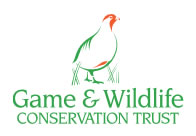10 reasons to support our work
1. There is not enough food – modern farming is very efficient and there is not enough food left in late winter to feed our game and wildlife.
2 Feeders keep gamebirds in good body condition – this helps to improve the breeding potential of our gamebirds.
3. Feeders increase densities of seedeating songbirds – our research shows that using feed hoppers more than doubles the number of farmland birds, including some red-listed species.
4. Proper feeding = successful pheasant shooting – well-placed feeding sites hold birds during the shooting season.
5. Keep your gamebirds in place – Feeders help to hold breeding pairs of birds to an area.
6. Help with counts – Birds stay closer to feeders during certain periods of the year.
7. ‘Unwanted’ visitors can take a lot of the food – losing a great proportion of the grain to other unwanted species is expensive and time-consuming.
8. The feeding paradox? – our research suggests that many hoppers could be hiding the ‘feeding paradox’; might feed those that feed on gamebirds (ie. rats).
9. Feeders for rat control – feeders can play an important role in rat control, as trapping and poisoning often take place at feeding sites – but can we reduce the use of feeders by rats through other ways?
10. Is our feeding strategy the best it can be? – is it time to re-think how we feed our gamebirds? With feed wheat at £164 per tonne, we should all be curious about whether this feed is getting to its intended recipients – we cannot afford for it not to.
Find out how you can help >
The three elements of the new research
- To develop new winter feed hopper prototypes.
- Fit them with motion-sensor cameras and place them on field-test sites to record how they are working.
- Study the images triggered by birds or other mammals to see if they reduce feeding by unwanted species.
 GWCT News & Advisory
GWCT News & Advisory

No comments:
Post a Comment